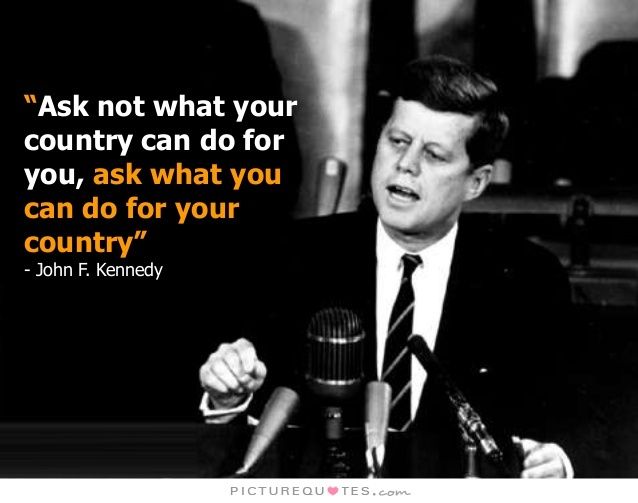The Other Liberal
Well-known member
- Joined
- Dec 18, 2020
- Messages
- 76
- Reaction score
- 59
- Age
- 56
- Location
- Lexington Kentucky
- Website
- theotherliberal.blogspot.com
Offline
A piece in the U Penn Statesman, a right leaning college paper states : At the core of liberal ideals are values of fairness, liberty, and above all, equality. It makes sense, therefore, that a liberal economic policy should seek to generate prosperity not just for the whole, but primarily for society’s least fortunate. Politically, this has manifested in ideas of big government and regulation. But if the liberal objective is to prioritize a moral outcome, then history and academia tell us the most “liberal” system is in fact capitalism.
Listening to conservatives you would think liberals oppose capitalism. Most of the time I assume they equate liberals with socialists as a scare tactic to get votes. However conservatives might really believe liberals are against markets and private enterprise. They are wrong. The fact is we both favor different types of capitalism. Conservatives believe freedom means being left alone - not interfered with. For them economic growth and prosperity depend on unregulated markets, fewer taxes, and less social spending. Liberals believe regulated markets ensure the public wellbeing and competition essential to markets. Furthermore we recognize the limits of charity to help those in need. This necessitates social safety nets which are funded through taxes especially on high income earners. Socialism eliminates markets and private enterprise in favor a worker control and ownership of economic resources.
The OP paints a rosy picture of laissez faire capitalism : The freedom of capitalism also generates unparalleled hope and equity. Capitalism at its heart is the dream of “rags to riches.” That any person of any background can, through ambition and industriousness, be liberated from socioeconomic strata seems like the quintessence of liberal values. It creates a meritocracy in which hard work, not origin, leads to success. The post further states.... If liberals truly do want an outcome that advances society’s least fortunate, then unadulterated capitalism is the clear answer. While ideological debate is usually founded in conjecture, when it comes to the economy, history and hard data make the case clear: the government should seek to give economic agency to the people wherever possible. As Milton Friedman put it, “Government should be a referee, not an active player.”
It's true individuals freely create all kinds of businesses. Some are small and others become large corporations with thousands of stockholders. A few people get rich while many others are middle class. This fuels growth and prosperity. However greed, negligence, short sightedness, monopolies, and economic downturns often lead to abuses and harm. Workers, consumers, and the environment are affected. Inequities consign many to poverty. Regulations, taxes, and social welfare have minimized harm and spread prosperity to more people. If this were not the case the misery and discontent among working class would have led to violent unrest even revolution. The OP doesn't think about this. Capitalism works so well because of democratic interventions supported by liberals and social democrats not untamed markets and enterprises favored by conservatives.

 upennstatesman.org
upennstatesman.org
Listening to conservatives you would think liberals oppose capitalism. Most of the time I assume they equate liberals with socialists as a scare tactic to get votes. However conservatives might really believe liberals are against markets and private enterprise. They are wrong. The fact is we both favor different types of capitalism. Conservatives believe freedom means being left alone - not interfered with. For them economic growth and prosperity depend on unregulated markets, fewer taxes, and less social spending. Liberals believe regulated markets ensure the public wellbeing and competition essential to markets. Furthermore we recognize the limits of charity to help those in need. This necessitates social safety nets which are funded through taxes especially on high income earners. Socialism eliminates markets and private enterprise in favor a worker control and ownership of economic resources.
The OP paints a rosy picture of laissez faire capitalism : The freedom of capitalism also generates unparalleled hope and equity. Capitalism at its heart is the dream of “rags to riches.” That any person of any background can, through ambition and industriousness, be liberated from socioeconomic strata seems like the quintessence of liberal values. It creates a meritocracy in which hard work, not origin, leads to success. The post further states.... If liberals truly do want an outcome that advances society’s least fortunate, then unadulterated capitalism is the clear answer. While ideological debate is usually founded in conjecture, when it comes to the economy, history and hard data make the case clear: the government should seek to give economic agency to the people wherever possible. As Milton Friedman put it, “Government should be a referee, not an active player.”
It's true individuals freely create all kinds of businesses. Some are small and others become large corporations with thousands of stockholders. A few people get rich while many others are middle class. This fuels growth and prosperity. However greed, negligence, short sightedness, monopolies, and economic downturns often lead to abuses and harm. Workers, consumers, and the environment are affected. Inequities consign many to poverty. Regulations, taxes, and social welfare have minimized harm and spread prosperity to more people. If this were not the case the misery and discontent among working class would have led to violent unrest even revolution. The OP doesn't think about this. Capitalism works so well because of democratic interventions supported by liberals and social democrats not untamed markets and enterprises favored by conservatives.

The Liberal Case for Capitalism - The UPenn Statesman
Usually, political debate with my peers ends in impasse, but I still do it, because an unquestioned viewpoint is never valid. As someone whose broader ideology began in fiscal conservatism, I have always asked with genuine curiosity why my liberal peers believe in their economic platform. And...
 upennstatesman.org
upennstatesman.org


